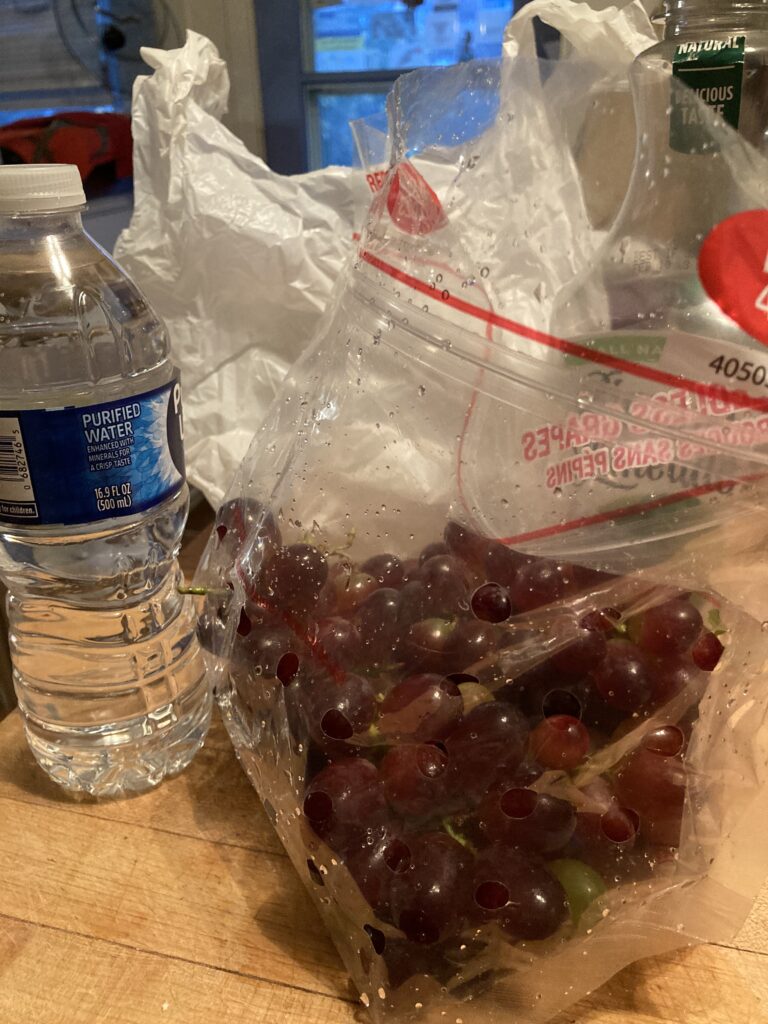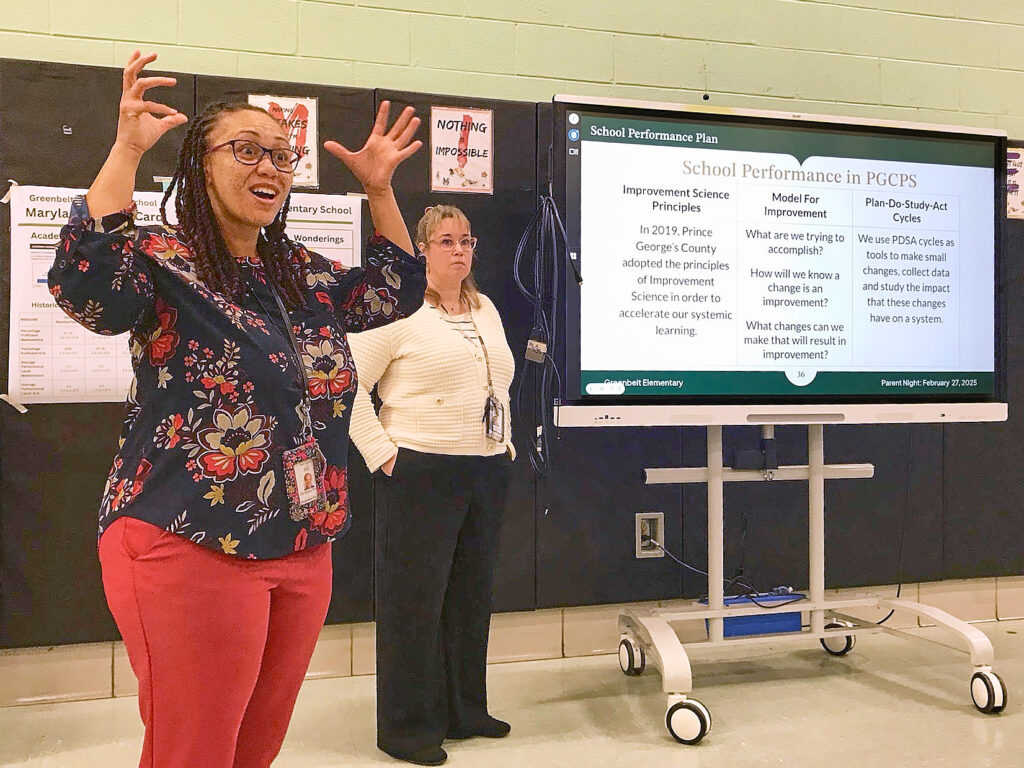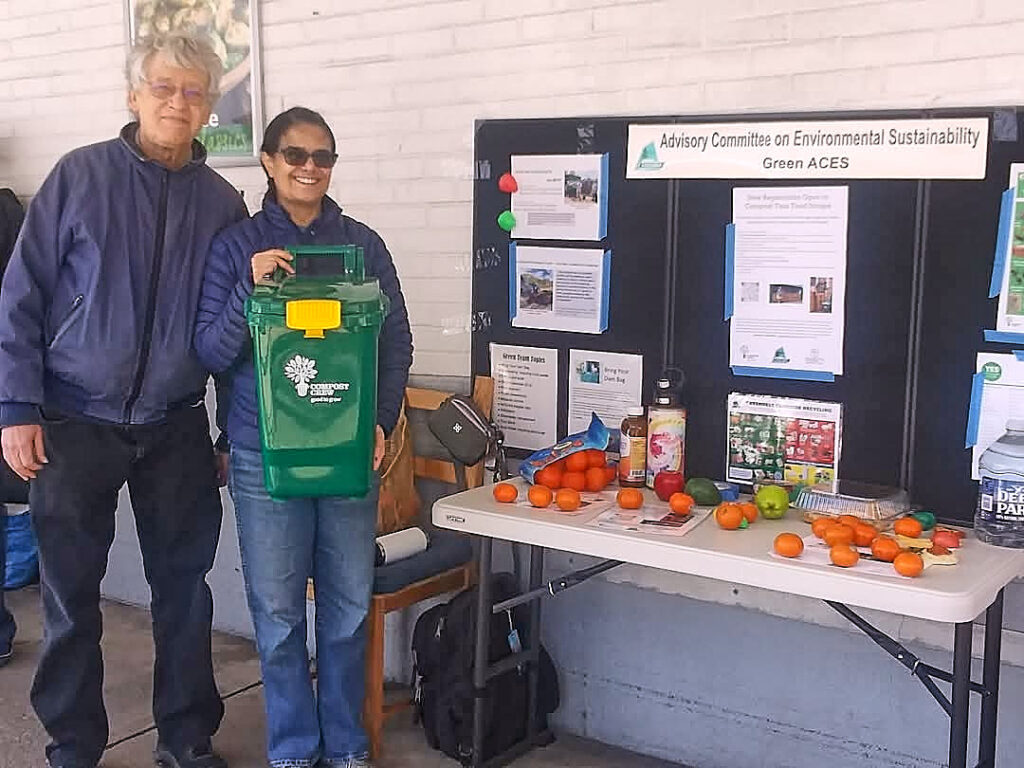Each year before the Maryland Legislative session opens, the members of the Greenbelt City Council meet with representatives of state, county and other local jurisdictions to share the priorities of our community.
Priorities and Concerns
This year Greenbelt’s top priorities are: a ban on single-use plastics; improvements to Greenbelt Road’s streetscape; improvements to the Greenbelt Metro Station; requesting more information on abatements; and clarification of language describing constant yield tax rates.
Also discussed was opposition to three proposed projects: the maglev train routes, Beltway widening and construction of a Bureau of Engraving and Printing facility on the Beltsville Agricultural Research Center. Three additional concerns were addressed: acquisition of the Greenbelt Armory property, disrepair of sidewalks adjacent to State roadways and concerns about Greenbelt schools.
Single-use Plastic Ban
Single-use plastics are just that – plastic items designed to be thrown away after one use. Many single-use plastic bans target carryout plastic bags to reduce pollution that is dangerous to human and animal health, encourage more sustainable habits and prevent waste. This type of plastic bag is increasingly manufactured from fracked gas and very few are recycled. Those that are, gunk up machinery used for processing curbside recycling. Plastic carryout bags take up to 1,000 years to decompose.
Councilmember Kristen Weaver, the liaison from the city council to the Greenbelt Advisory Committee on Environmental Sustainability (Green ACES), states that not only will the ban reduce the millions of tons of plastics polluting our waterways each year, but the ban will “encourage people to think about what they are doing.”
Background
For a few years former Maryland State Delegate for Baltimore City Brooke Lierman (now our state Comptroller) and Senator Malcolm Augustine (Prince George’s County) had sponsored a statewide plastic bag ban. The ban passed the House and the Senate Finance Committee but never made it to the Senate floor for a vote in 2021. At the time, Maryland would have been the ninth state to pass such a ban. In prior years the ban had gotten stuck in committee, just like the bags in the recycling machinery.
In 2020 the Maryland Retailers Association came out in favor of a statewide ban. Studies at that time showed that without a ban or fee charged for providing bags, 88.2 percent of customers would take a plastic bag in stores.
Nationally, the Department of the Interior has committed to phase out all single-use plastics (plastic and polystyrene beverage and food containers, disposable plastic bags, bottles, cups, straws and cutlery) in national parks by 2032. A 2011 ban on plastic water bottle sales in some national parks to reduce both waste and lower recycling costs was rescinded by the Trump administration. That ban had removed approximately two million water bottles per year for six years.
In October 2023, England will ban single-use utensils, plates, bowls and cups in an effort to reduce litter in the oceans and waterways of the world. Canada’s ban on single-use plastics took effect on December 20, 2022. Kenya, Zimbabwe, China, India, Thailand, Bangladesh, Rwanda and the European Union all have taken action on single-use plastics.
Locally, Montgomery and Howard counties, Takoma Park, Salisbury, Chestertown, Laurel, Easton, Westminster and Baltimore City have all passed plastic bag bans or a tax or statute that require stores to charge for plastic bags. These regional bans hope to change behavior in their areas and lead statewide efforts by example. The Four Cities (Berwyn Heights, College Park, New Carrollton and Greenbelt) are discussing a coordinated effort, according to Weaver.
Takoma Park bans plastic bags, straws, stirrers and polystyrene takeout containers. Additionally, Prince George’s County has had a plastic straw ban in place for food service and retail businesses since July 1, 2020.
Resources
Deb Daniel reported for the News Review on the presentation on plastic bag bans given by Martha Ainsworth of the Sierra Club to Greenbelt City Council on October 11, 2022 (see article on page 13 of the November 24, 2022 issue). Access the presentation by clicking on the Municipal Access TV button on the city website at greenbeltmd.gov and find the presentation in the agenda packet for the October 11 meeting. Also available online is the 2013 Sustainability Plan Framework for Greenbelt produced by Green ACES, available at greenbeltmd.gov/government/boards-committees/green-aces.



